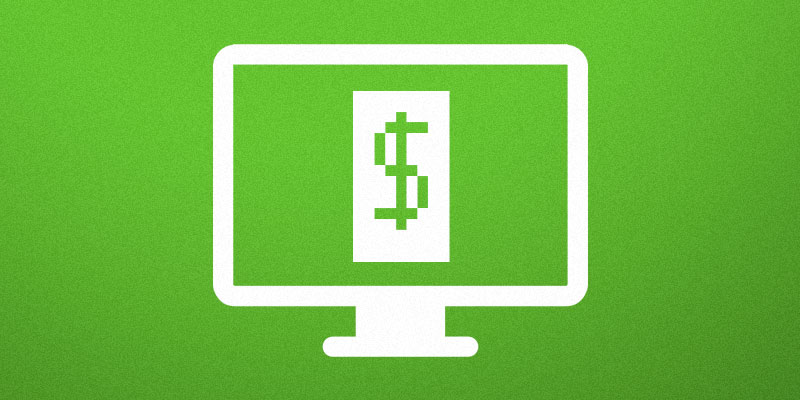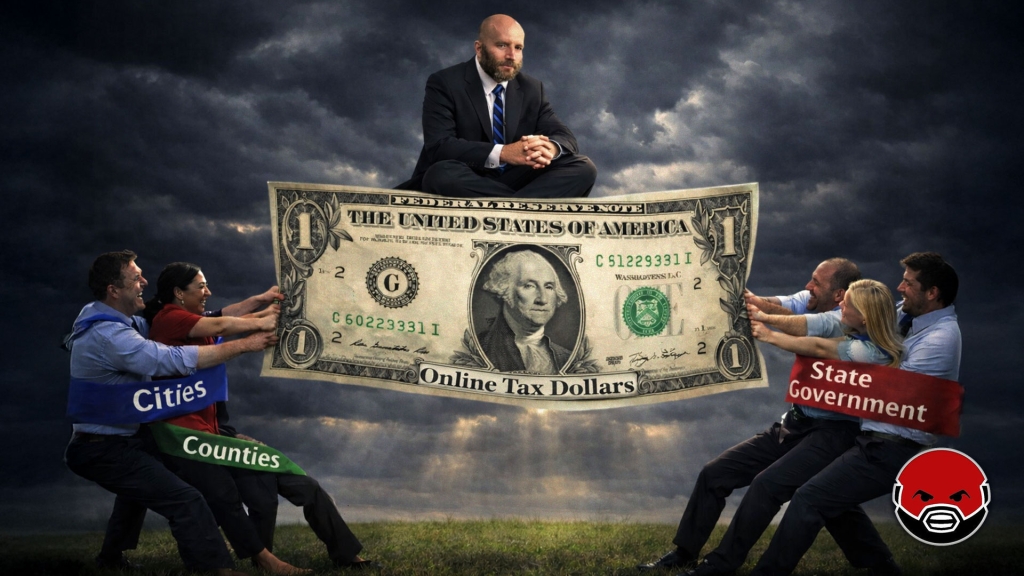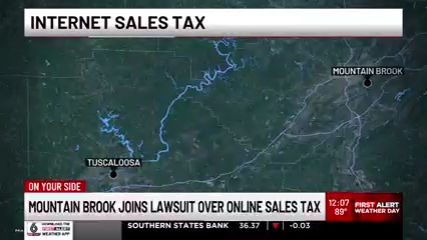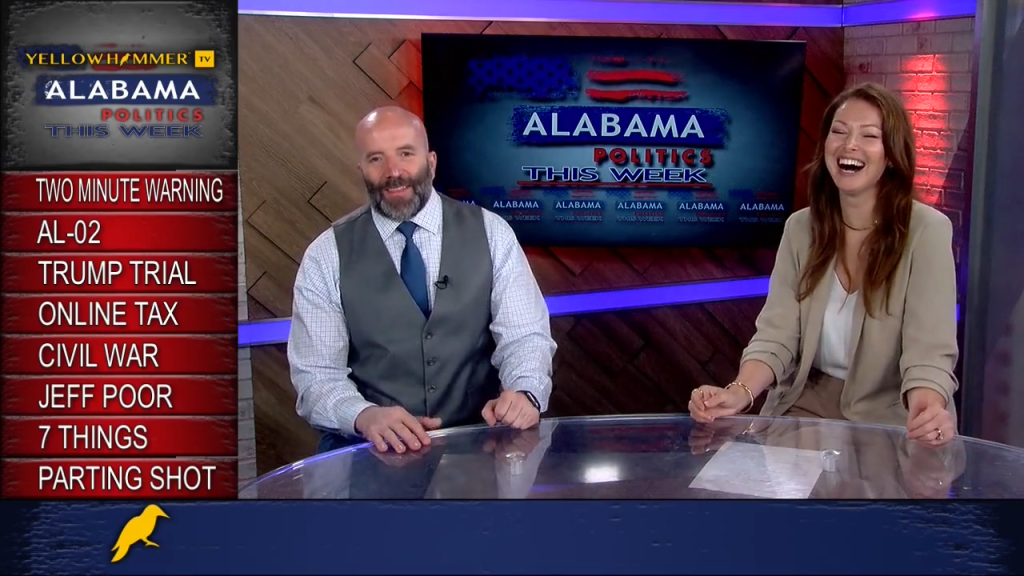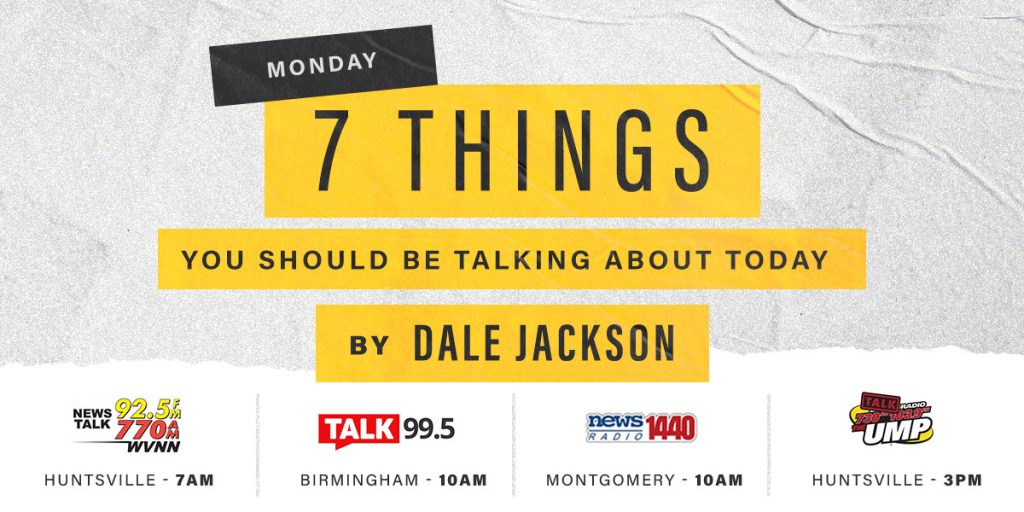Presidential tweets and a Supreme Court case have reignited the question of taxing internet sales. The Court in April heard arguments in South Dakota v. Wayfair regarding whether a retailer must have physical presence in a state to have to remit sales taxes. The physical presence rule goes back to 1967 and mail order catalogs.
E-commerce has been costing state and local governments tax revenue, as South Dakota argued in the case. But instead of trying to collect sales taxes online, perhaps we should abandon a 20th Century economy tax.
General sales taxes produced 23 percent of state and local tax revenues nationally in 2015, while “selective sales taxes” on gas, tobacco, and alcohol contributed another 11 percent. Alabama raises 48 percent of our tax revenue from these taxes. Abandoning sales taxes would open a chasm in Alabama government budgets.
Economics shows that we will have less of anything which we tax. Taxes affect our behavior, creating a cost beyond the revenue raised for the government. “Optimal tax theory” examines keeping this extra cost as low as possible while raising needed government revenue. Efficiency is not, of course, the only factor for evaluating taxes, as most of us also care about fairness.
First widely used in the 1930s, sales taxes readily funded local governments when most people shopped at stores near home. The local sales taxes Alabamians paid went to their city or county government. Times have changed.
Sales taxes have always had drawbacks. For one, they are regressive, meaning that taxes as a percentage of family income falls as income rises. Although economists disagree about how progressive taxes should be (with a progressive tax, payments as a percentage of income increase with income), few view regressive taxes as fair.
Beyond regressivity, services have also proven hard to tax. Malls and big box stores avoided a local sales tax by locating beyond the city limits. Consumer use taxes, enacted for purchases made without paying sales taxes, have proven cumbersome. High taxes on cigarettes have led to cross-border shopping and smuggling.
Online retailing worsened collection problems. Although Amazon now generally collects sales tax, universal collection will be neither easy nor cheap. Differential tax treatment of online and brick-and-mortar sellers raises economic and fairness concerns. Avoiding sales taxes helps keep inefficient online retailers in business. And brick-and-mortar retailers face unfair competition when consumers can avoid sales taxes online.
Internet shopping has improved life for shoppers and entrepreneurs. Shoppers can choose from sellers world-wide without leaving the house. Makers of unique products no longer need to rely on mail order catalogs, and social media groups promote the products to interested consumers. The cost of collecting sales taxes for small businesses, however, is substantial: 13 percent of tax revenues for small retailers, versus 2 percent for large retailers.
Public service ads today encourage people to shop local retailers to fund local government. But optimal tax theory says we should not let taxes distort economic activity too much. Should we potentially halt the evolution of e-commerce, and all the benefits this may bring, simply because local governments can more easily collect sales taxes from local stores?
Our city and county government provide valuable services like police and fire protection, streets, schools, and garbage collection. These services should be adequately funded. I also believe in federalism and want local governments to impose their own taxes. Having Washington collect more taxes and then fund local governments undermines federalism.
Alternatives exist for sales tax revenues. In Alabama, our lowest in the nation property taxes represent an alternative. We might want to try pollution taxes, which promise sound environmental policy and could fund government.
Should we substantially revamp our tax system? If sales tax collection does not stifle e-commerce, my concern becomes moot. Ultimately government in the United States is supposed to serve our interests. Perhaps sales taxes are as outdated as Sears, Toys-R-Us, and the famous retailers who collected them.
Daniel Sutter is the Charles G. Koch Professor of Economics with the Manuel H. Johnson Center for Political Economy at Troy University.




